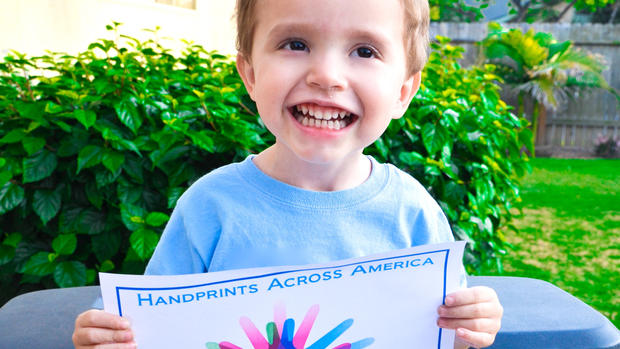Rare Disease Day puts spotlight on 30 million Americans
This February 28, organizations around the world are raising awareness for people who have diseases so rare that studies into causes and treatments may not even exist.
Rare Disease Day is an annual event that targets the general public, industry groups, researchers and policy-makers to teach them about rare -- or orphan -- diseases and how they impact patients' lives.
Just what exactly makes a disease "rare?"
The federal government defines a rare disease or disorder as one that affects fewer than 200,000 Americans at any given time. In Europe, the definition for a rare disease is one that affects less than 1 in 2,000 people. That means some diseases may be considered rare in the United States but not overseas.
There are an estimated 7,000 rare diseases in the U.S. affecting 30 million people, Mary Dunkle, vice president for communications at National Organization for Rare Disorders, told CBSNews.com. Two-thirds of American patients with rare diseases are children.
"In many respects it's a really small world with rare diseases," said Dunkle, who gets emails everyday from people around the world trying to get information, or connect with others in similar situations.
She said that people with different rare diseases often face similar problems, including not enough funding for research into treatments, with some rare diseases not being studied at all. For some disorders that are researched, funding comes directly from patients and their families -- not grants. Patient organizations will hold raffles, car washes, bake sales and other fundraisers just for a chance at research that can give them hope, she said.
"Only a few hundred of the 7,000 rare diseases have approved treatments," said Dunkle. "We're the voice of the entire community, and we try to articulate those types of challenges everyone without a rare disease can relate to."
Complete coverage: Rare Disease Day
This Rare Disease Day marks the 30th anniversary of the Orphan Drug Act, which was passed in 1983 to find adequate treatments for diseases such as Huntington's disease, ALS, Tourette's and muscular dystrophy. The Act provided the first meaningful incentives to sponsors to develop much needed medical products for rare disease sufferers, according to the Food and Drug Administration. Since its passage, over 400 products for rare diseases have gotten approved, according to the agency.
Anne Pariser, associate director for Rare Diseases at the FDA, told CBSNews.com in the 10 years before the Orphan Drug Act, there were only 10 medications to help treat rare diseases. Now, about one-third of brand new drugs approved by the FDA each year are for rare diseases. About 20 rare disease medications in total are approved annually, some of which are existing drugs that additional research has shown to treat orphan illnesses.
Rare Disease Day was founded in 2008 by a patient-driven alliance of Europeans called the European Organization for Rare Diseases (EURORDIS), and the inaugural event took place on the rare leap-year day of Feb. 29th.
The following year, NORD joined the campaign on behalf of the United States.
Dunkle said that this year's theme is "Rare Disorders Without Borders," where each participating country -- last year there were 63 -- organizes nationally relevant awareness events.
In the U.S., NORD will kick off a 24-hour-Handprints on the Hill campaign, asking Americans to fill out a letter to their elected officials that informs them about Rare Disease Day.
People can also donate to NORD or other organizations raising money to research rare diseases.
To get involved, visit the Rare Disease Day USA website.
Find out more in the official video for Rare Disease Day 2013:
